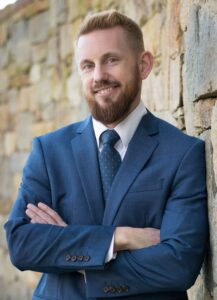You’re probably familiar with that feeling — a sudden urge to get your finances in order.
Yet, most people today still fail to undertake the most basic steps needed to achieve financial freedom, such as making a monthly budget, setting up an emergency fund or even automating their investments.
In truth, while there are many paths to financial freedom, without steps like these, even setting foot on that path is unlikely. You may ask yourself: “Sure, achieving financial freedom sounds great. But what does it mean to be ‘financially free’ anyways?”
Three great stories, three personal finance bloggers: we asked what financial freedom means to them — and how they got there.
Whether you’re looking to benefit from personalized budgets like Joel, retire early like the bloggers at Think Save Retire, or get out of $200,000 debt and overcome horrific traumas like the anonymous blogger at Refined by Fire, their stories demonstrate that financial freedom is possible in many ways.
It turns out, there is no one proven path; however, there is one common lesson we can take away: Financial freedom must start with a shift in our money mindset.
First, ask yourself if any of these scenarios sound familiar:
Without fail, an unexpected expenditure arrives. A sudden large medical bill is charged. Car repair expenses rise. School enrollment fees. A mortgage.
How are you going to pay for all that?
These life events can catch us off guard — and are made even more worrying when a global pandemic strikes. What are you going to do now? That was certainly not part of the plan.
There are, fortunately, guidelines that each of these stories share that prove that adopting a new outlook and lifestyle habits can dramatically improve our financial outlook.
In short, the path to financial freedom starts when we can stop worrying about making enough money. Financial freedom does not always require a dramatic custom change to our character. Indeed, the path to financial independence often results from the simplest changes of habits.
However, most of us cannot tick off even two of the below easily achievable actions of the financial freedom checklist:
- Create a budget
- Start an emergency fund
- Build a retirement plan
- Automate investments
Believe it or not, if you also cannot check off two of those, you have a lot in common with many people who today have claimed financial freedom.
Popular personal finance management (PFM) bloggers have built large audiences and reputations often on the fact that many of them were once like most of us. Their stories are relatable, powerful and actionable.
Perhaps the most instructive, they all have outlined a different path to success, so reading and comparing their stories presents an opportunity to understand which sets of advice may work best with your particular lifestyle.
We want to bring you the stories of:
- Joel, the founder of 5am Joel and a blogger at Budgets are Sexy — a 35-year-old Australian that lives in Los Angeles.
- Melissa Hollis Goff, the editorial director of Think Save Retire — an aspiring “rich grandma” that lives in the US Pacific Northwest.
- “Mr. Refined”, the founder of Refined by FIRE — a “financial enthusiast” that climbed out of a $200,000 debt following a series of horrible events.
Sarwa asked each of these popular bloggers, “What does financial freedom mean to you?”, as well as how to get on the path to financial independence.
Let’s hear from Joel first.
Joel has taken over the popular blog Budgets are Sexy, whose founder ‘J Money’ has since risen to millionaire status.
Besides Budgets are Sexy, Joel also writes on his blog 5amJoel. Here he details his inspiration to begin waking up at 5am every day and how he built a habit has helped put him on the path to retire early.
“My current financial situation is best described as “Coast FIRE.” [More on that below.]
“Basically, my wife and I have accumulated enough assets that, if left alone, will continue to grow and get us to financial independence within probably five to seven years,” says Joel.
“As long as we don’t withdraw from our portfolio, reaching financial independence is inevitable.”
Joel, what does financial freedom mean to you and how does it inspire your writing on “Budgets are Sexy”?

Financial freedom means I can spend my time on the activities I truly enjoy in life, without worrying about the financial consequences. All my decisions can be made based on happiness, not dollars.
Budgeting is the cornerstone of my financial freedom. When I build my budget each year, I get to decide which categories I want to spend more money on, based on the value it provides in my life. That’s the beauty of personal budgets – everyone gets to custom design their own!
How did cleaning up your finances help set up your path?
I try to simplify my spending and investments as much as possible, which makes my financial profile neat and tidy. Having a clean and clear view of my financial position makes things easier to control, and grow over time.
How big of a role does career choice actually have in obtaining financial freedom?
I think there’s a mental difference between a “career” and a “job”. I want to make my overall “career” as long and as happy as possible, so money isn’t a big factor when choosing my career.
That being said, when starting my FIRE journey, I chose various “jobs” that I didn’t necessarily want to do long term, but provided higher pay to build my nest egg.
What long- and short-term strategies have best helped you reach your goals?
Self education has played a huge role in achieving my goals early in life. The more I grow and learn, the more I can accomplish. I‘ve made a daily habit of reading, studying, and reflecting.
In the long term, I believe you can get everything you want in life if you help others achieve what they want first. One long-term strategy I’ve been using is trying to help others as much as possible. What you give your community in pennies, your community pays back in dollars. Helping others is rewarding me in ways I never imagined.
Did automating your investments help?
Investing isn’t optional – it’s mandatory. The earlier one starts investing in life, the earlier they can achieve financial independence!
Today’s modern tools and information make it very easy to invest your savings, in a smart and proven way. I recommend everyone put their investments on auto-pilot, setting up a system that builds wealth in the background while they focus on other fun activities!
Next Melissa at Think Save Retire shared her point of view.
Started by Steve and Courtney Adcock, this blog was part of the couple’s dream to retire early.
Their dream came true in December 2016, and the blog was passed on to new management as the couple sailed into the figurative retirement sunset.
Melissa now runs editorial at the blog.
Melissa, what does financial freedom mean to you?

There are many extreme definitions of financial freedom but all it really needs to mean is that your daily life doesn’t revolve around money. By that I mean you’re not worried about making enough money or how much you’re spending. You’re not living to make money, you’re making money to live. It doesn’t have to be paying off all of your debt and living off the grid. You can have good debt and still achieve financial freedom. To me, it’s a mental activity.
That’s why it’s important for people on the path to financial freedom to focus more on shifting their mindset about life than their mindset about money. If you’ve spent much of your life pursuing money and working lucrative jobs this is a great way to become financially independent. But as you get closer to needing less income to cover your living expenses and lifestyle, make sure you open your mind to what makes life worth living. Things like art, music, human connection vs. continuing to think about money.
What role has good budget design played in creating your financial freedom?
There is nothing more freeing than taking one hour a month to go through your budget and determine how much you need to use for bills, savings, and then how much you GET to spend however you want.
I recently went over this in a video on the Think Save Retire YouTube page where I talked about budgeting for beginners. While the video is for novice budgeters, it’s also for people who have neglected their budget or procrastinated to start observing their spending. So much of this comes from fear that budgeting will make them feel bad but budgeting has been one of the most empowering parts of my adult life.
No matter how much or how little money I made at different points in my life, I’ve kept track of my spending in a very simple, non-exhaustive monthly budget spreadsheet. Every time I go through the process of completing this spreadsheet, I am amazed at how much I have to be optimistic about, financially speaking, and as far as my lifestyle is concerned.
How would you advise people to choose a career when thinking about financial freedom?
Many personal finance bloggers will advise you to pick a career that you’re good at and that has a ton of earning potential. There are full lists of lucrative careers ranked by the college degrees that go along with them. But I’d argue that choosing a career this way is the opposite of financial freedom. Putting yourself through any period of time where all you do is punch in and out and restrict your happiness is a recipe for misery for the sake of money.
My advice for someone who wants to be financially free is to spend the time as early as possible in life to determine what matters most to you. Answer for yourself, “If money didn’t matter, what would I want to spend each day doing?”
If you can answer that question, do that and you’ll never be a prisoner to a paycheck. No matter how many commas there are on it.
What financial strategies best helped your founders to retire early?
I think the best advice on Think Save Retire can be summed up into two categories:
1. Give your money purpose
When it comes to long term thinking, have a goal or a vision in mind for what lifestyle you want your money to afford you. Breaking that down into short term strategies means as you experiment with the many ways to build wealth, set goals and benchmarks that you can hit to determine the value of each strategy and whether it’s going to be worth your time and energy.
2. Live within (actually, well under) your means
As you make more money, it’s tempting to spend more and live larger and larger. This is known as lifestyle creep and it is very real and a huge trap for most people. It’s the reason you see high income earners with higher than necessary debt.
Steve Adcock, who started Think Save Retire, has shared his story many times and how much stuff he had accumulated because he was in a high paying role. Those things were ultimately to fill a void and once he realized that, he downsized and started his journey to early retirement.
For myself, this has meant always searching for ways to keep my living expenses as low as possible. Could I live in an overpriced apartment in downtown San Francisco? Yes. But it would be stretching my budget further than I want to and I know deep down that would be financially stressful and ultimately not worth the Walk Score.
What habits have best helped you in your path towards financial freedom?
I’m still working toward achieving 100% financial freedom but I attribute the progress I’ve made to date to living well under my means. As my income has grown, I’ve always been extremely mindful of my living expenses, keeping my rent and mortgage payments between 10% to 20% of my household income. I regularly take account of how little money I would actually need to support myself if I had to, which is well under $1,000 a month.
How can investing help? Especially new automated investing techniques and tools?
You don’t get rich by hoarding your money in a savings account. If you’re not investing your money, it’s sitting there without a purpose and a lost opportunity.
Investing can give your money purpose. It puts your money to work for you—especially if you use automated or robo investment tools.
Now to you, “Mr Refined”!
This blogger is commonly known as “Mr. Refined.” You will soon see why. His story is definitely an unusual path to success.
As his blog name Refined by FIRE suggests, his journey to financial freedom was fraught with hardships. Much of what Mr Refined went through would have made many people simply give up.
After landing a great job straight out of university,
“I found out I was immune to pain meds, my car was hit, I was sued by a loan collector, and I missed my son’s birth,” says
“The week of closing on my house my college sweetheart left me for a coworker. I was devastated, lost my job, and almost lost my foster daughter and house.”
Facing $200,000 in debt, Mr Refined took matters into his own hands. He has since landed a better job, paid off all of his debt, tripled his investable net wealth, adopted his foster daughter
Mr R efined, tell us about your own definition of financial freedom?

To me, financial freedom means having enough assets to cover the cost of your living expenses so that you never have to go back to work and trade your life energy or free time for earned income simply to cover those expenses.
This freedom allows you to pursue things that actually interest you, in an environment that fits your values, with people that you actually care to spend your time with.
In other words, you never have to go to work and spend your precious remaining life energy doing anything other than what you truly find value in.
Imagine doing that rather than what your boss demands you finish before you can go home to the people you love and want to spend your time with.
How did you overcome $200,000 in debt and what role did budgeting play?
I decided to face my debt, buckle down, and aggressively pay off everything I owed. Five very committed years later I was debt-free.
For me, budgeting was essential. Budgeting made me aware that I was spending money on things that I didn’t need, to impress people that I didn’t care about, and with money I didn’t have.
Tracking my spending and budgeting allowed me to spend lavishly on the things that aligned with my values and cut ruthlessly on the things I didn’t get value out of. It allowed me to make each dollar as effectively as it could possibly be.
How does your view of financial freedom impact your blog Refined by FIRE?
I started my company and website to help inspire other people out of situations of financial hopelessness to a future of abundance. I changed my life through a series of financial habits that led me from significant debt to financial security.
FIRE is an acronym for Financially Independent Retire Early. It is a path to early financial freedom.
What advice do you have for boosting income with career and job choices?
I believe career choice is important because it sets the pace at which you can earn income if you follow the traditional path of an employee. However, it has little bearing if you choose the path of entrepreneurship or self-employment where there are no salaries or income caps. If you do choose the employee path, I recommend commissioned-based jobs.
While a high-income career choice can quickly get you on the path to financial freedom there is a more significant factor that allows you to accumulate wealth.
A high savings rate can trump any chosen profession and result in greater accumulation of net wealth especially when combined with low expenses. Remember that the goal is not to make more but rather to keep more for yourself.
What financial strategies and habits have best helped you achieve your goals?
I am very much a long-term thinker and planner. I’d begin with the end in mind and work my way backward to the short-term goals that have to be in place to achieve your ultimate dreams and goals at the desired pace. Dared to dream big. Want to dream bigger? I hereby give you permission.
Determine what you want your ultimate success and wealth to look like and reverse engineer the small consistent steps that need to be in place in your daily habits to achieve that level of success. Are not the mightiest of mountains not eroded one raindrop at a time?
Finally, how can automating your investments help achieve financial freedom?
Investing wisely is paramount to growing your net wealth. Compound interest is the gasoline on the fire. It is what Einstein called “the eighth wonder of the world.” It allows a little wealth to be converted, over time, into a lot of wealth. I recommend starting immediately with any amount, no matter how small. “The best time to plant a tree was 20 years ago. The second best time to plant a tree is today.”
Automation is the key. It allows us to conserve the limited mental energy and decision-making capacity that we all possess in any given day. Automation allows us to make the decision once of how wealthy we wish our future self to be. From there we can set it and forget it.
We can allow the magic of compound interest to accumulate in the backgrounds as we focus on the things that truly deserve our time and attention in life.
